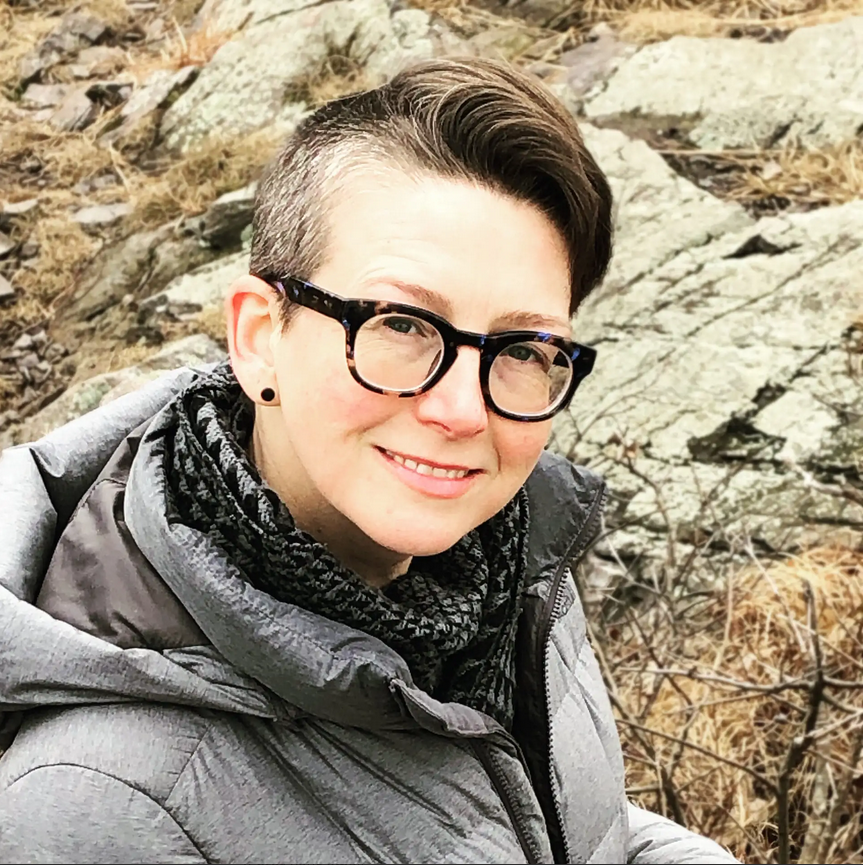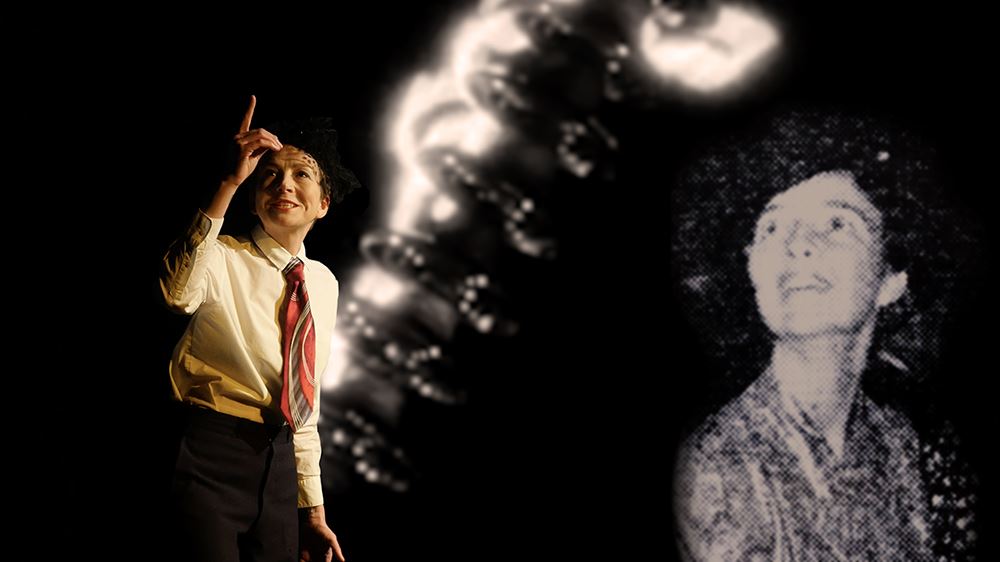
MEMBER SPOTLIGHT
September 12, 2022
This week we recognize Sarah Kanouse Sarah Kanouse based in Boston, and her recent works including a solo performance "My Electric Genealogy (above), which will premiere in Los Angeles this month.
For nearly forty years, Kanouse's grandfather worked for the Los Angeles Department of Water and Power, designing, planning, and supervising the network of lines connecting the city to its distant sources of electricity. His legacy includes some of the most polluting fossil fuel infrastructure in the country—much of it located out of state, on Indigenous land. As these power plants finally and belatedly come down, the performance asks what is owed to the communities long harmed by this infrastructure? Weaving together signal moments in the city’s history with voices of Diné advocates for just, equitable transition, “My Electric Genealogy” is an essayistic working-through of energy as a personal and collective inheritance at a moment of eco-political reckoning.
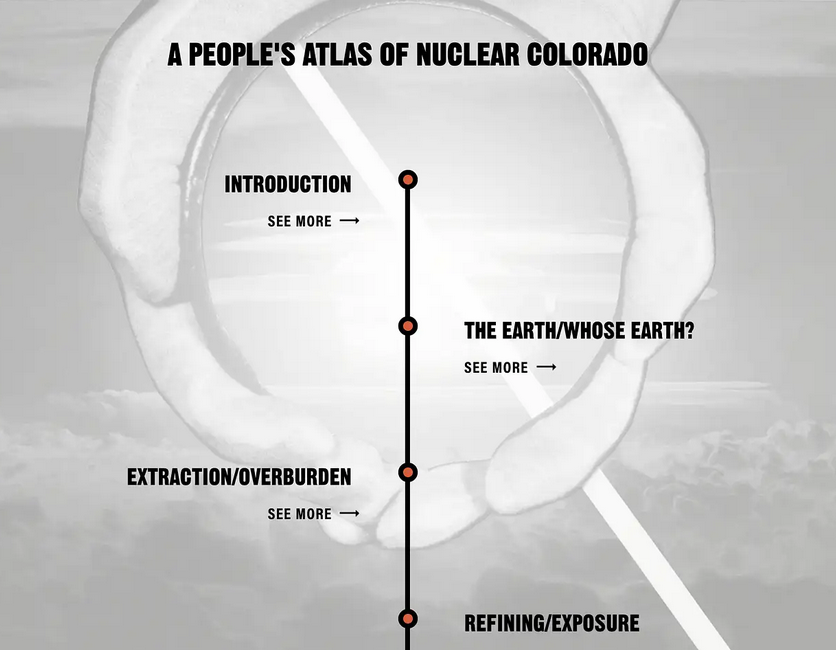
"A People’s Atlas of the Nuclear Colorado (above) is a digital public humanities project that documents and interprets the relational geographies of nuclear materials developed and deployed by the United States. With contributions by scholars, students, and artists, the Atlas offers the public an opportunity to explore, research, and document nuclear materials and ecologies of Colorado. Powered by the Scalar publishing platform, the Atlas is loosely organized around the nuclear fuel cycle, from extraction, milling, and processing to the assembly and deployment of weapons to the storage and monitoring of waste. It challenges, however, conventional models of this process by weaving in its 'shadow side:' environmental contamination, workplace exposures, boom and bust economies, geopolitical instability."
"Beyond Property (below) is a suite of tools guiding inquiry into the proposition that property is an Anthropocene technology. The collection includes: a book of readings; a suite of cards for embodied exploration; a small sculptural object; and a section of barbed wire removed from an American fenceline decoupaged or “bandaged” with text from the writings from Gerrard Winstanley, the 17th century English activist-philosopher. Rooted in Quakerism, Winstanley’s True Levellers movement enacted a powerful critique of the morality of private property at the moment of its formalization through enclosure. The project began as part of Field Guides to the Anthropocene Drift, published by Field Station 2 with the Haus der Kulturen der Welt, Max Planck Institute for the History of Science, and the Goethe Institute, Chicago." [Free downloads]
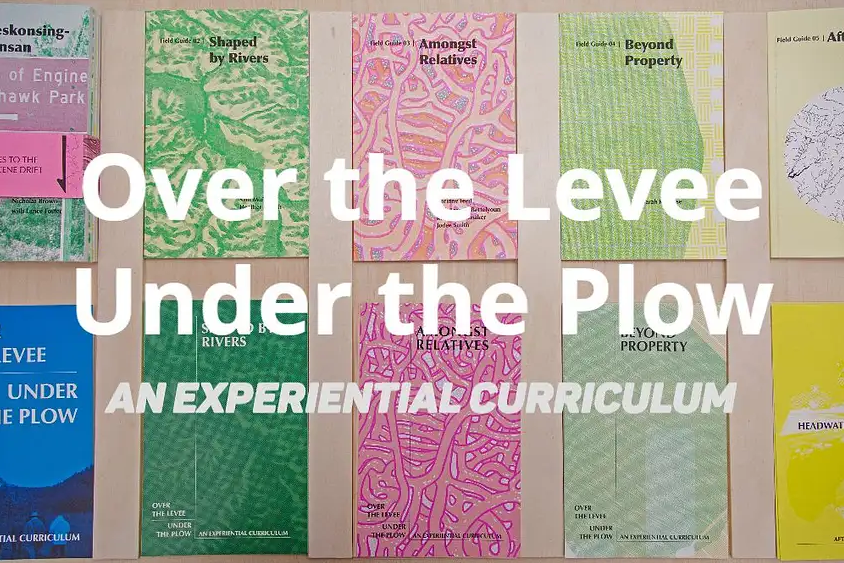
"Ecologies of Acknowledgement (below) was commissioned by the University Hall Gallery at UMass Boston for the exhibition Local Ecologies, which included a video, letterpress print, and boat tour, focuses on the land use histories of Deer Island in the Boston Harbor. Going beyond mere ‘recognition’ of Native territory, the project asks instead what it means to accept the relationships and responsibilities that come with living on occupied land. In the 17th century, Deer Island was a forced Indian removal and incarceration site, where between 500 and 1,000 people suffered from dire conditions comparable to a concentration camp. It is now the site of Boston’s wastewater treatment plant."
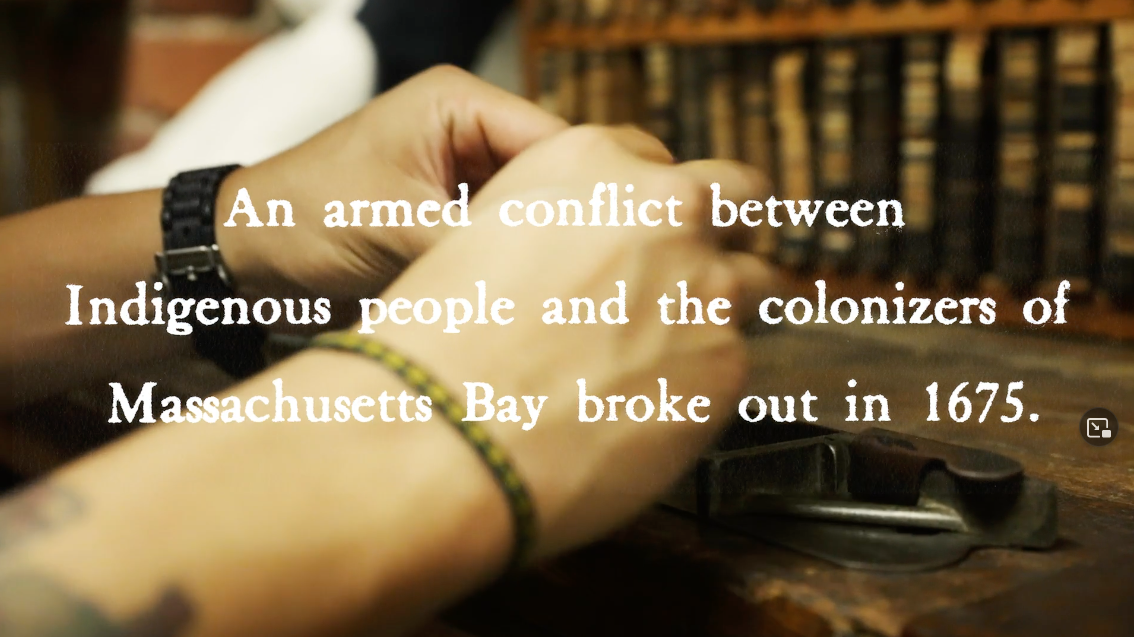
"The experimental nonfiction film Grassland (below) uses stop-motion animation, live action footage, text fragments, and expressive sound to excavate the stratigraphic layers of belief, ecology, practice, and geology that form a northeastern Colorado landscape. Carved out of decimated ranch lands during the Dust Bowl, the grassland is both a conservation zone and a working landscape. Cattle grazing, nuclear missiles, hydraulic fracturing, and wind power generation co-exist within a few miles of each other. Less explication than essay, the film locates the grassland in historic and geologic time, ranging over changing frameworks of law, ideology, and cosmology, variable and contradictory human practices, and the material and geological forces of the land itself. Meditative original footage of the grassland merges with collage animations created from diagrams, drawings, and found photography to portray the refuge’s subterranean activities, from well drilling to missile storage to soil sedimentation. The resulting nineteen-minute film is a poetic and unsettling portrait of a complex, evolving place."
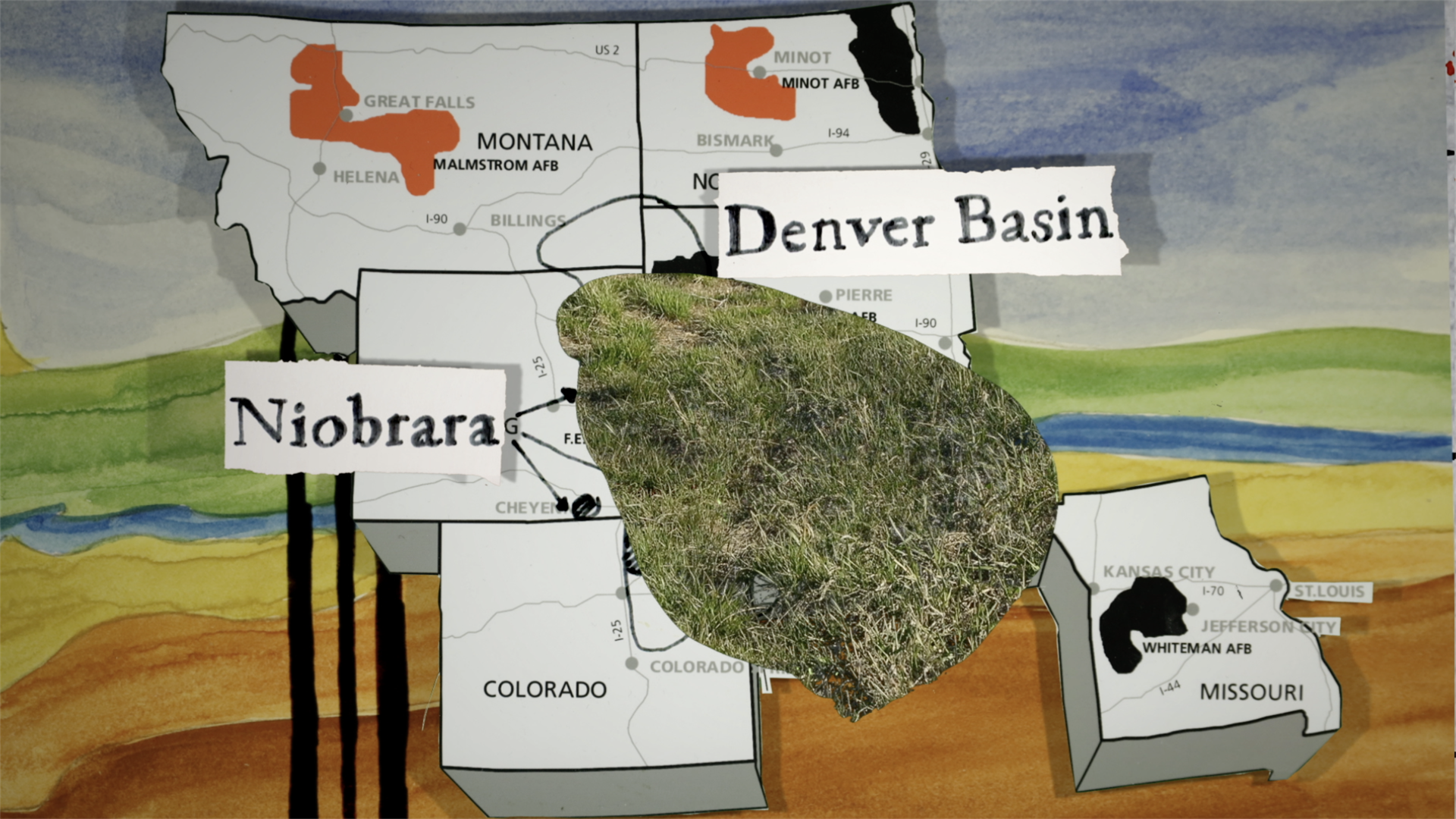
Sarah Kanouse is an interdisciplinary artist and critical writer who examines the politics of landscape and space. Migrating between video, photography, and performative forms, her research-based creative projects shift the visual dimension of the landscape to allow hidden stories of environmental and social transformation to emerge. Her creative work has been screened or exhibited at Documenta 13, the Museum of Contemporary Art-Chicago, the Cooper Union, the Clark Art Institute, the Smart Museum, the Museum of Contemporary Art Detroit, and in numerous academic institutions as CUNY Graduate Center, George Mason University, University of California Berkeley, and the University of Wisconsin. She has written about performative and site-based contemporary art practices in the journals: Acme, Leonardo, Parallax, and Art Journal; as well the edited volumes Ecologies, Agents, Terrains, Critical Landscapes, Art Against the Law, and Mapping Environmental Issues in the City. A 2019 Rachel Carson Fellow at Ludwig Maximilian University of Munich, Sarah Kanouse is Associate Professor of Media Arts in the Department of Art + Design at Northeastern University. She earned her MFA degree in Studio Art from the University of Illinois, and a BA in Art, magna cum laude, from Yale University. readysubjects.org
Featured Images (top to bottom): ©Sarah Kanouse, My Electric Genealogy, 2021-2022; A People's Atlas of the Nuclear Colorado, 2021; Beyond Property, Field Guides to the Anthropocene Drift, 2021; Ecologies of Acknowledgement, traveling exhibition 2019-2021; Grassland, 2019, nonfiction film recently screened at the Mimesis Documentary Film Festival, Boulder, Colorado; portrait of the artist (below).
